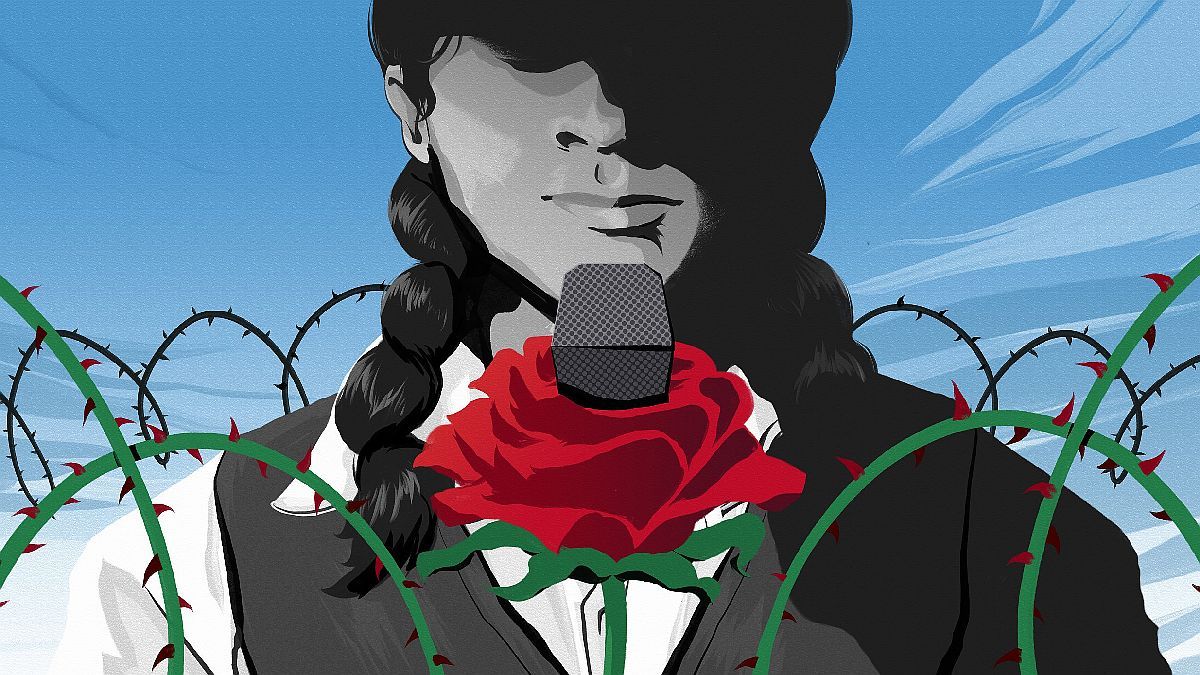In the movies about war in the Pacific, a female announcer can often be heard speaking in English with a slight oriental accent, addressing the combatants to evoke memories of their homes back in Kentucky, Arizona, Georgia. …that woman’s voice on the radio spoke about the families that were waiting for them, the girlfriends they had left behind to go to an unnecessary war. Would they wait for his return? Would they return to marry them as they had dreamed? Or were they being deceived at that precise moment? And behind these words, a blues could be heard to exalt nostalgia.
Was the “Zero Hour”, a program organized by Allied prisoners of war recruited by Japanese intelligence to undermine the fighting spirit of the Americans, Australians, English and New Zealanders who faced the Empire of the “Rising Sun” on those lost islands in the Pacific. There they were harassed by the suicidal perseverance of the Japanese commandos, the incessant bombardment of their artillery and the relentless mosquitoes and vermin that only left them alone on days when it rained torrentially.
image.png
The cycle drivers was the Australian commander Charles Cousenscaptured in the Battle of Singapore, the American captain Wallace Ince and the Filipino lieutenant Norman Reyes. They had been recruited under threat by the relentless Japanese military police known as Kepeitai for this cycle that lasted until the end of the war. There was a voice that the allied combatants could not forget, it was that of the “orphan Anna”, although the soldiers baptized her as the “Rose of Tokyo”. There was not a single Tokyo Rose, at least 24 young people registered to play that voice that was responsible for evoking memories of their homes every night. Among them stood out the history of Iva Toguri D’Aquinodaughter of Japanese immigrants born in Los Angeles, California, in 1918. She was the only American of the voices of Tokyo Rose.
image.png

Iva had graduated from the university of that state with a degree in zoologist. In 1941, she traveled to Japan to visit a sick relative, but given the urgency of the case she did so with an identity certificate, without a passport. While in Japan, she asked the consulate for her passport, but due to the attack of Pearl Harborthe sending of documentation was suspended, and Iva was left without the possibility of leaving the archipelago.
While in Japan she married a Japanese-Portuguese Felipe D’Aquino. It should be remembered that the US government, fearing a Japanese invasion, confined hundreds of thousands of immigrants and children of oriental immigrants in concentration camps, taking away their rights. Iva’s parents and siblings were moved to Arizona. Her mother died on the trip from diabetes.
Iva Toguri D’Aquino, was pressured by Japanese authorities to renounce her American citizenship, but she refused. For this reason, her ration card was taken away. Without this documentation it was very difficult for her to obtain food. In fact, she became ill and even had to be hospitalized. Once she recovered, she was forced to look for work as a secretary, but she was denounced by neighbors of her uncles as a North American collaborator, because she was trying to deliver food to the Allied prisoners.
Given his command of English, he was offered a job in Radio Tokyoconverted into an organ of propaganda and dissemination of messages for the soldiers fighting against Japan. There she met Cousens who invited her to write scripts for the program “Hora Zero”. Iva refused to write anti-American scripts, and Coussens agreed to this limitation. In fact, the broadcasts in which Iva participated became a farce; American troops listened to them because they played good music.
“Anne the Orphan” He participated in about 350 programs. He called his listeners “my fellow orphans” and used American slang and phrases with double meanings that went unnoticed by Japanese censors.
At no time was there the “Tokyo Rose”; that was a name that the American soldiers gave him. In fact, a film of that name was filmed in 1946, when Iva’s existence was still unknown.
After the war, some journalists wanted to find this “Rose of Tokyo”. After investigating for a few weeks, they were able to find Iva, who was offered money for a report. She told the story of her and how she had become the announcer of the Radio Tokyo.
This is how the FBI and North American counterintelligence learned of the existence of Iva ToguriThey detained her to confirm her story and try to get information from her, but lacking evidence against her, she was released.
image.png

During his stay in prison, Hundreds of former American prisoners wrote letters in support of him and recalled how he had helped them by getting them food.
However, in 1948, some sensationalist media attacked Iva, and once again she was arrested and tried. Of the eight charges presented, which included treason (because she never stopped being American), only one was successful, and for that reason she was sentenced to ten years in prison and fined $10,000. Her husband D’Aquino was not allowed to remain in the United States.
Iva was released six years later and from then until her death she worked in a business her father owned in Chicago. In 1976, a journalistic investigation of Chicago Tribune showed that the accusations against him had been spread by two Japanese citizens forced to testify against him by the FBI.
A year later, the president Gerald Ford He pardoned Iva and restored her status as an American citizen, apologizing for the inconvenience this false accusation had caused her. Iva died in September 2006, in Chicago at the age of 90.
image.png

Charles Cousens He was also accused of treason when he arrived in Australia, but his former fellow prisoners testified in his favor, and Cousens was chosen to lead them in their celebratory victory march. Charles Cousens died in 1964. The two gave shape to that voice of nostalgia that made the soldiers return home every night…
Source: Ambito
David William is a talented author who has made a name for himself in the world of writing. He is a professional author who writes on a wide range of topics, from general interest to opinion news. David is currently working as a writer at 24 hours worlds where he brings his unique perspective and in-depth research to his articles, making them both informative and engaging.




